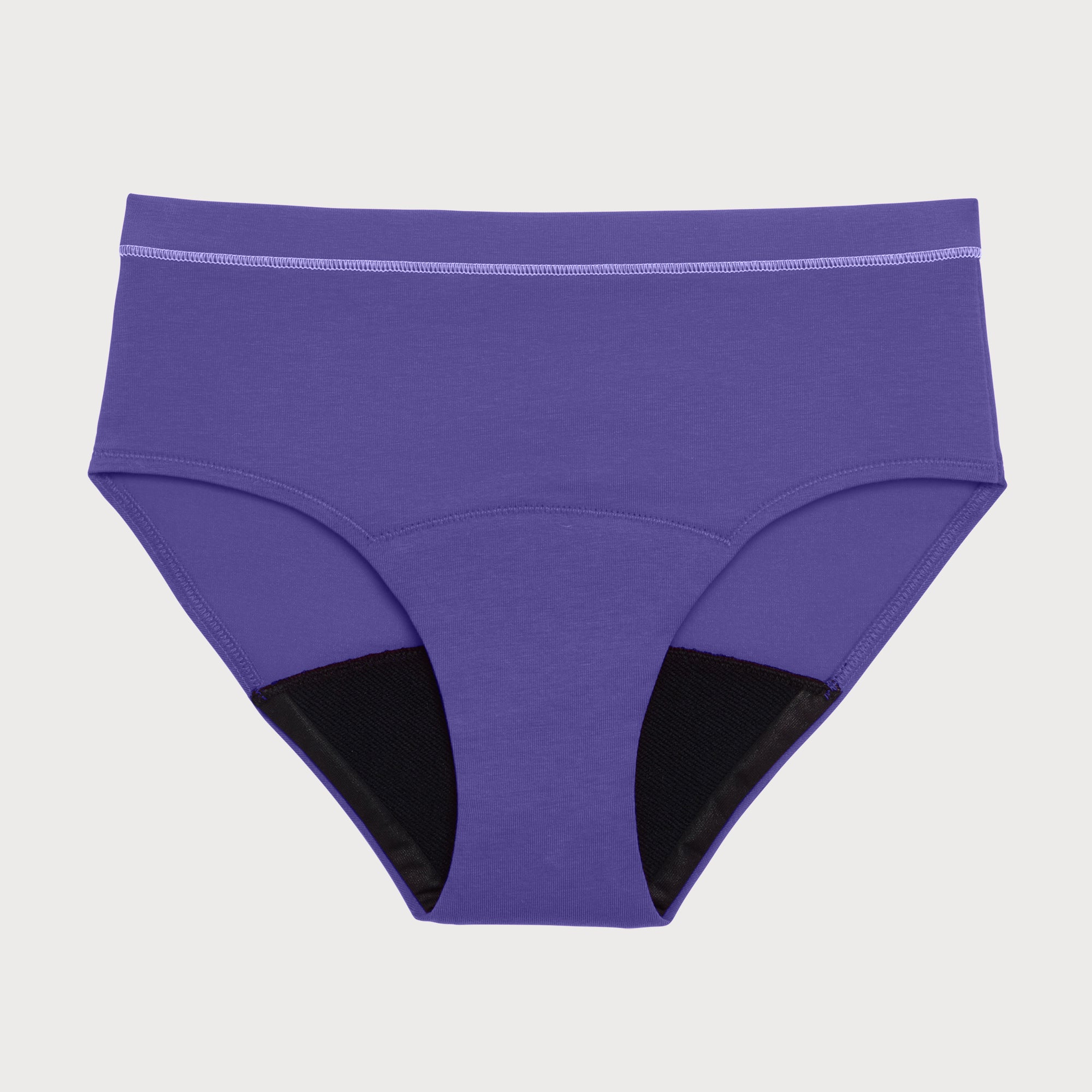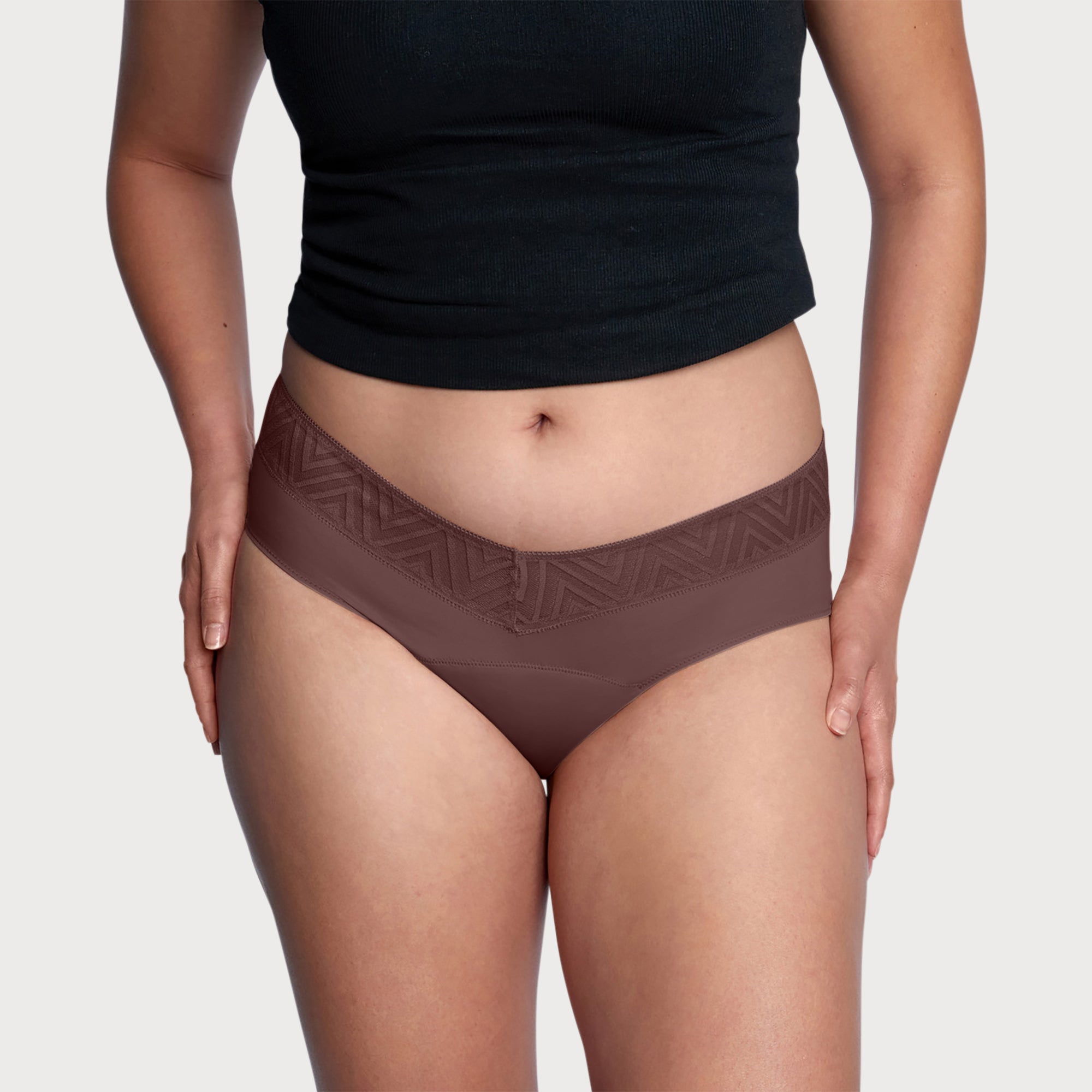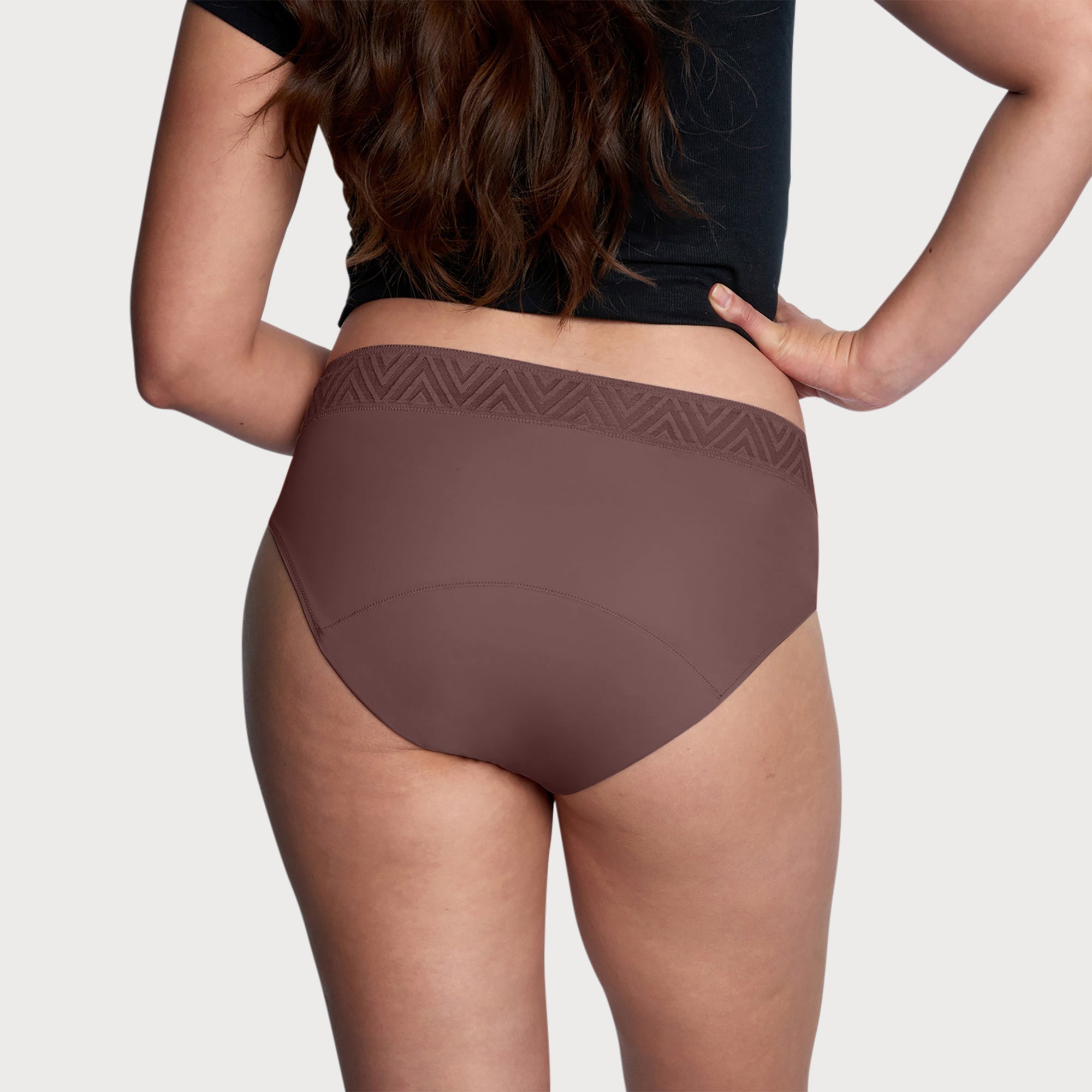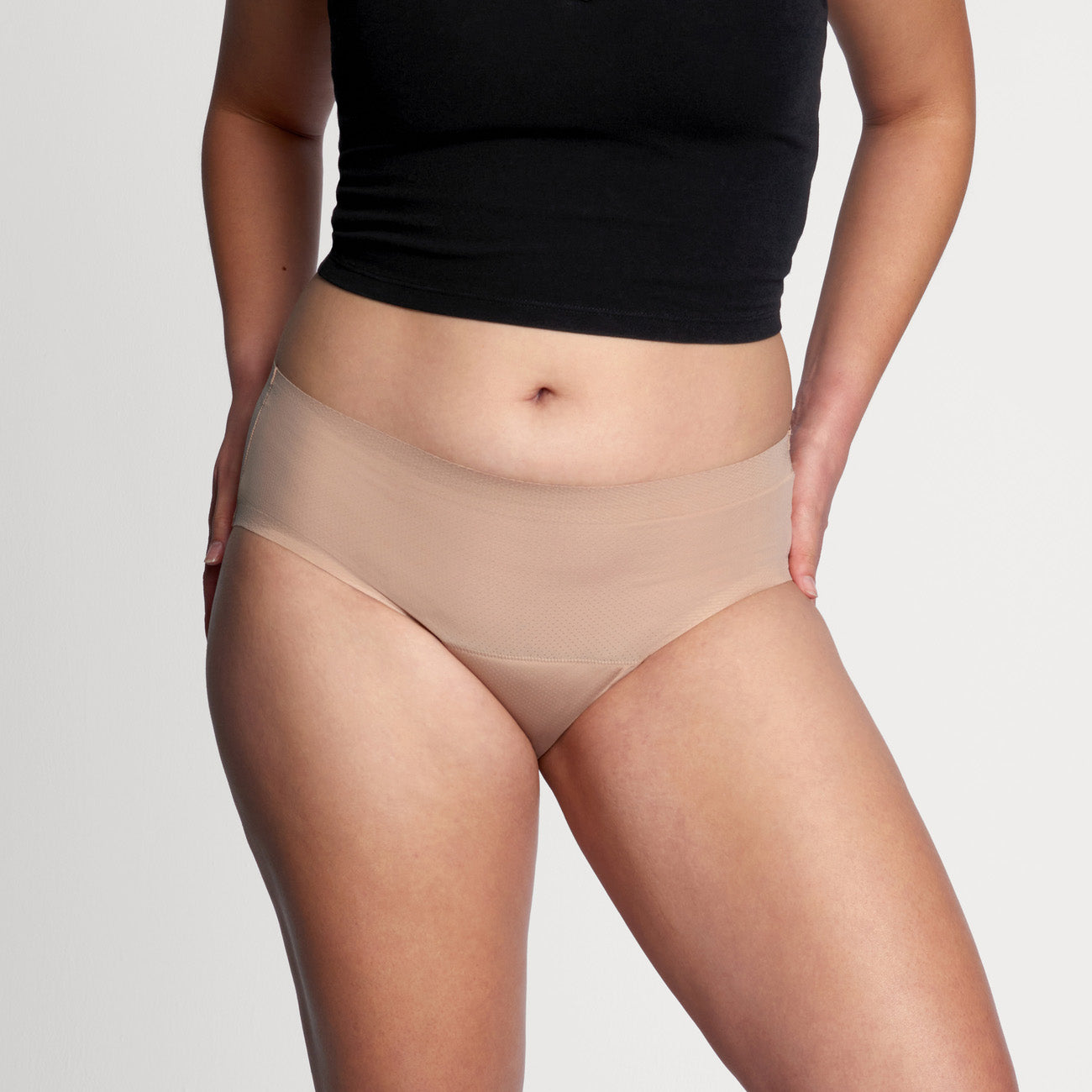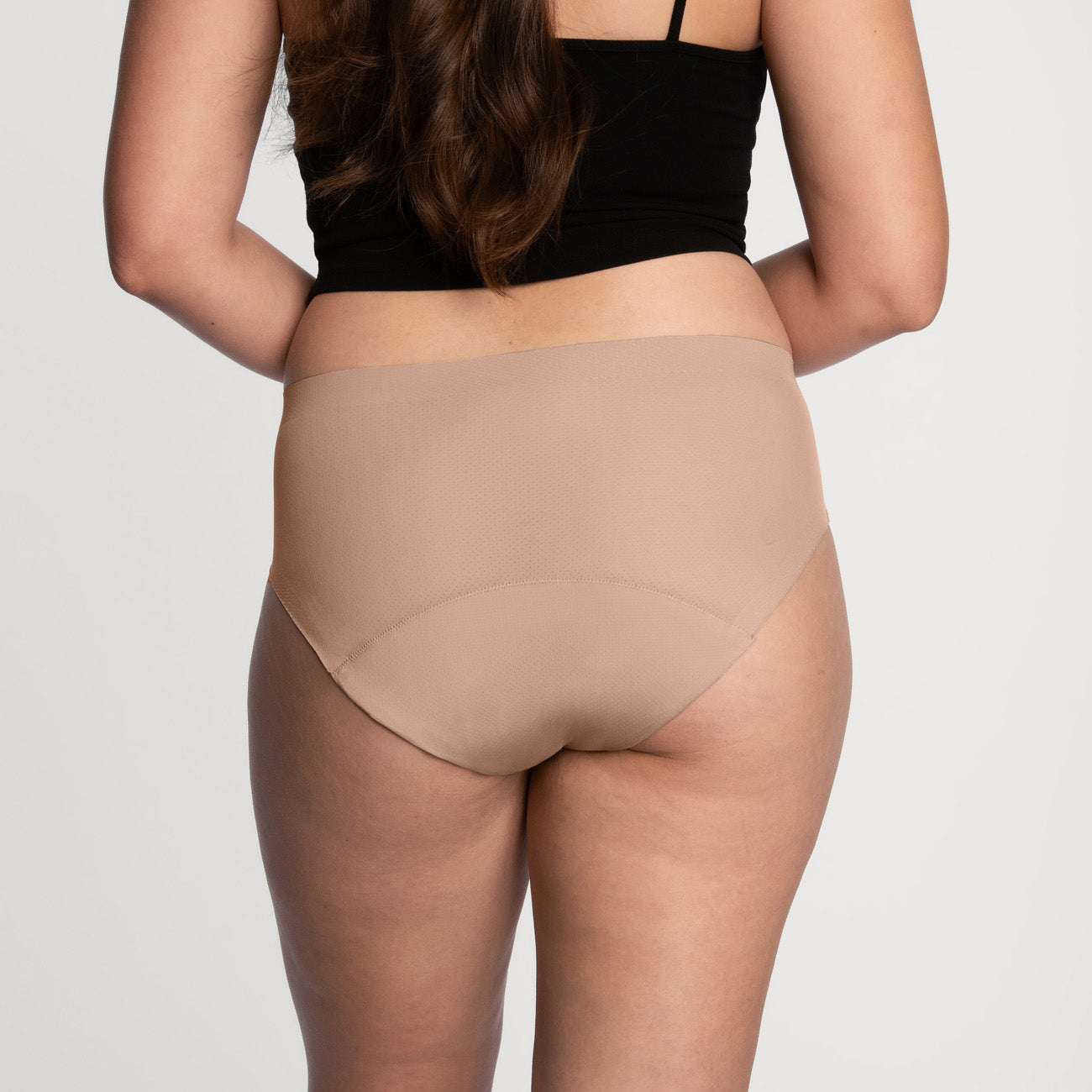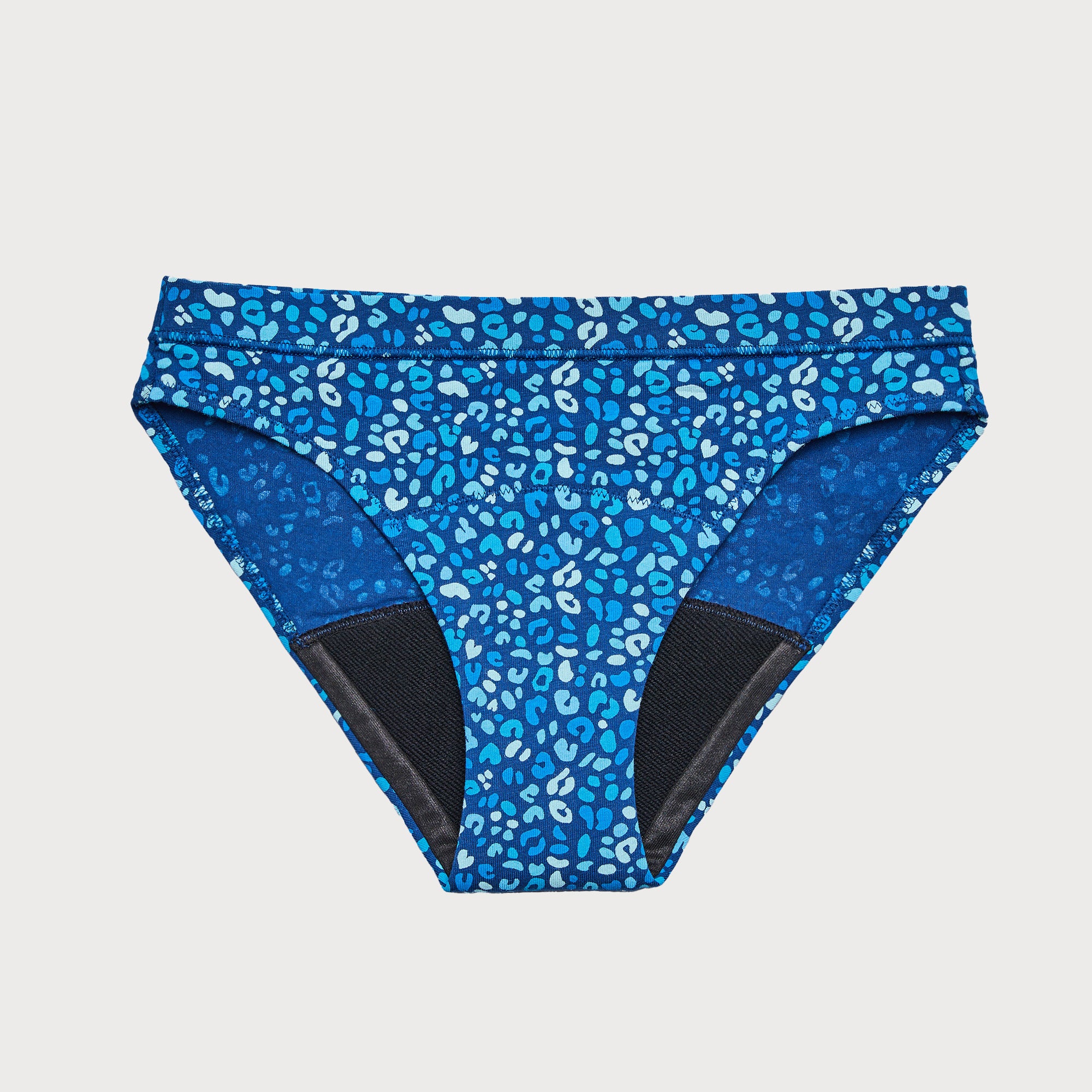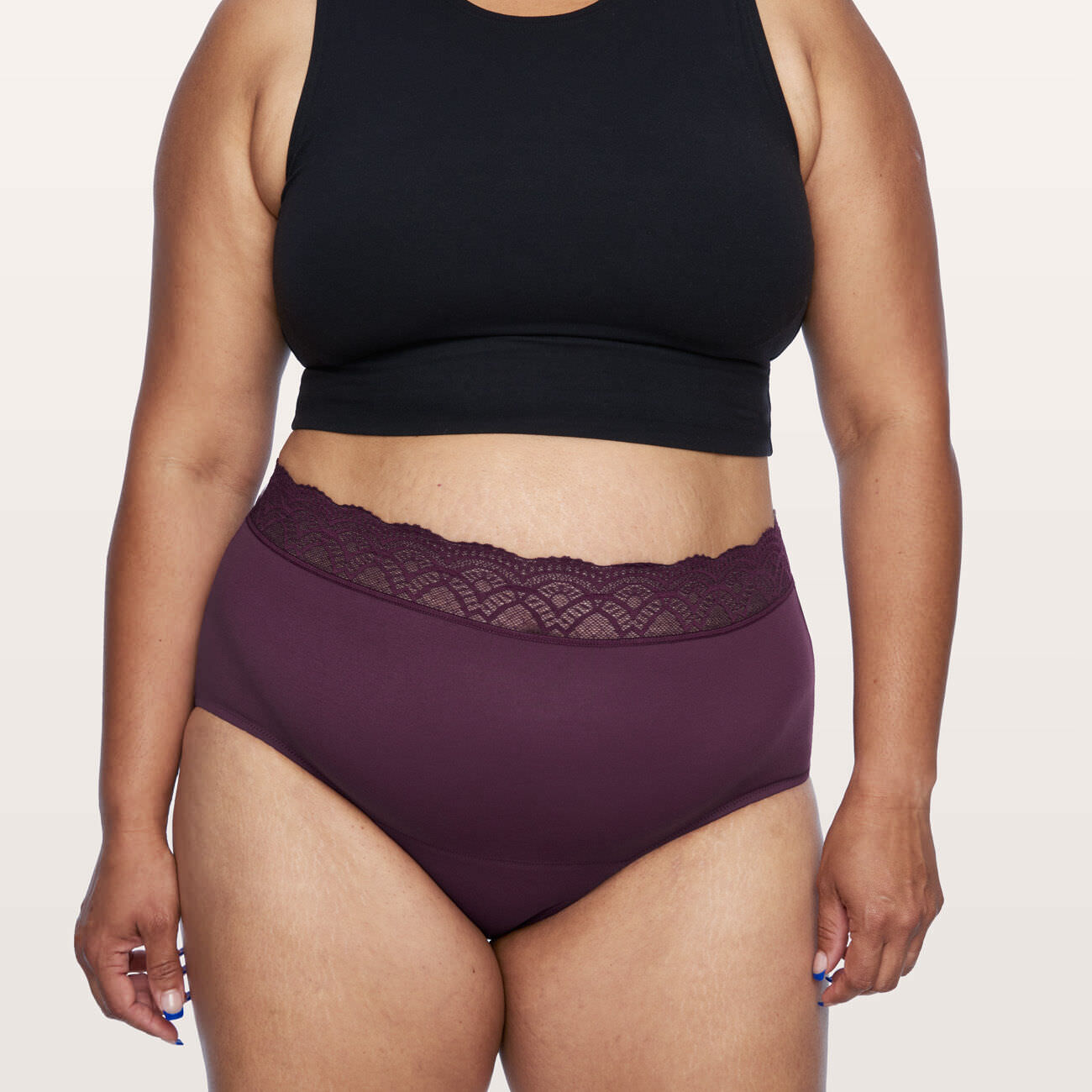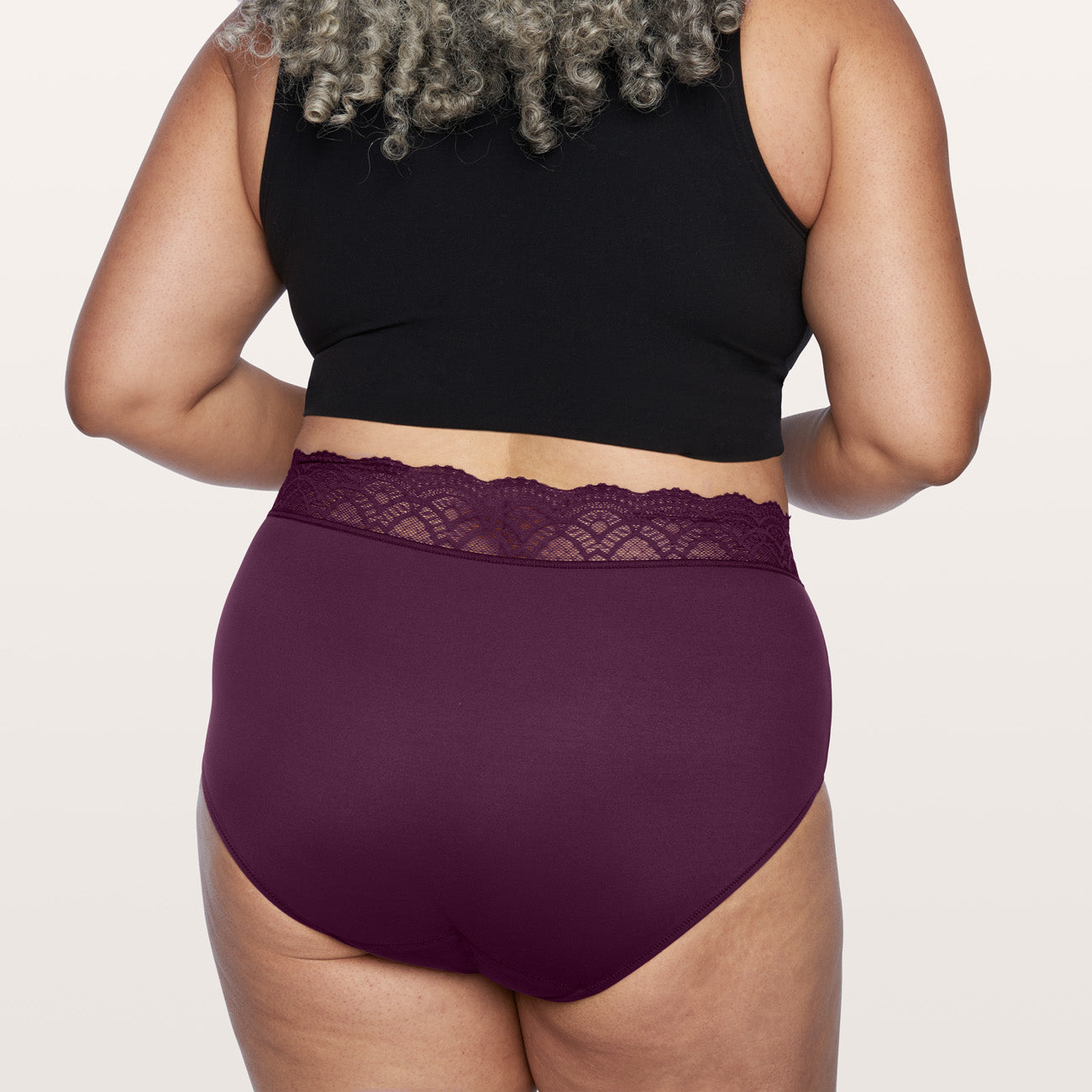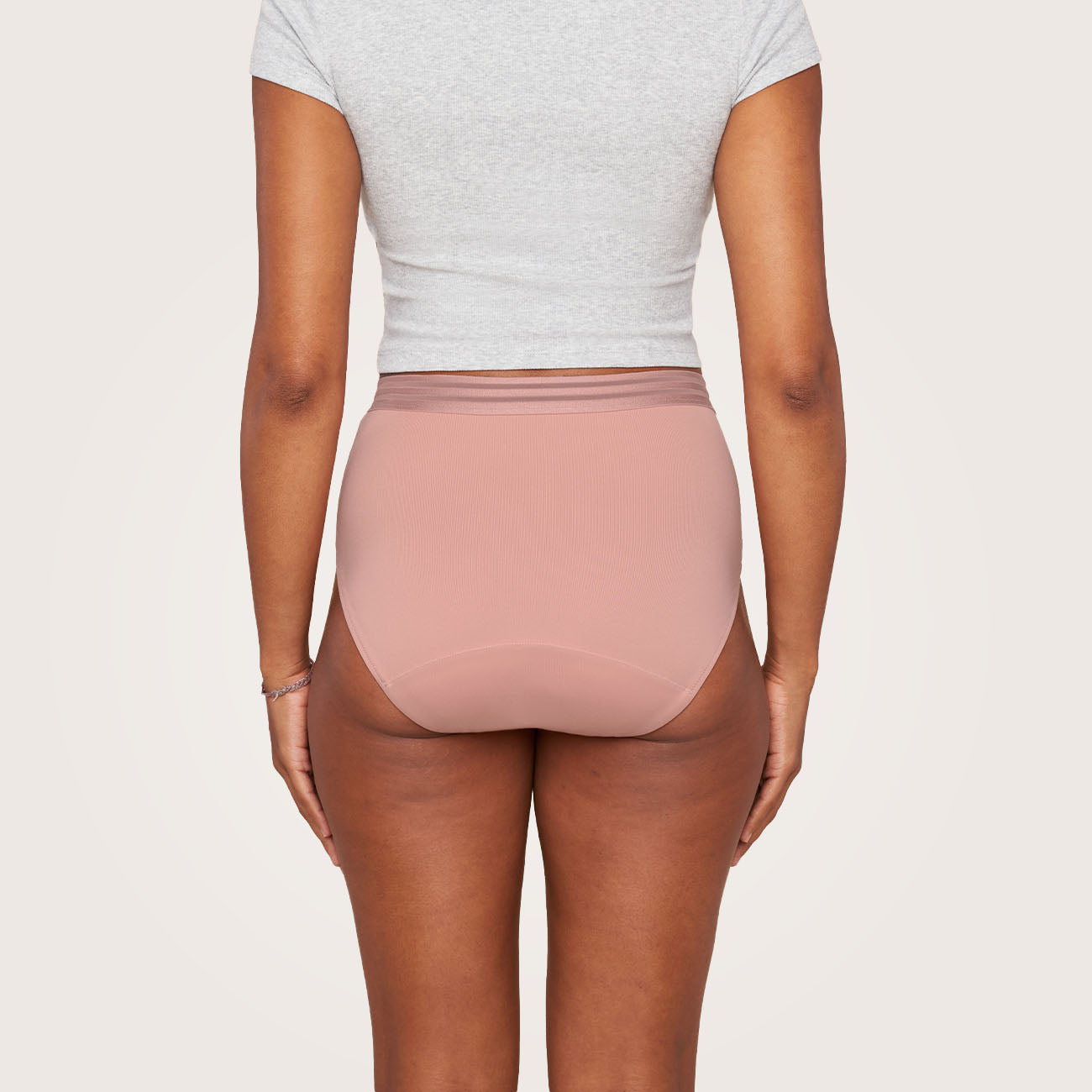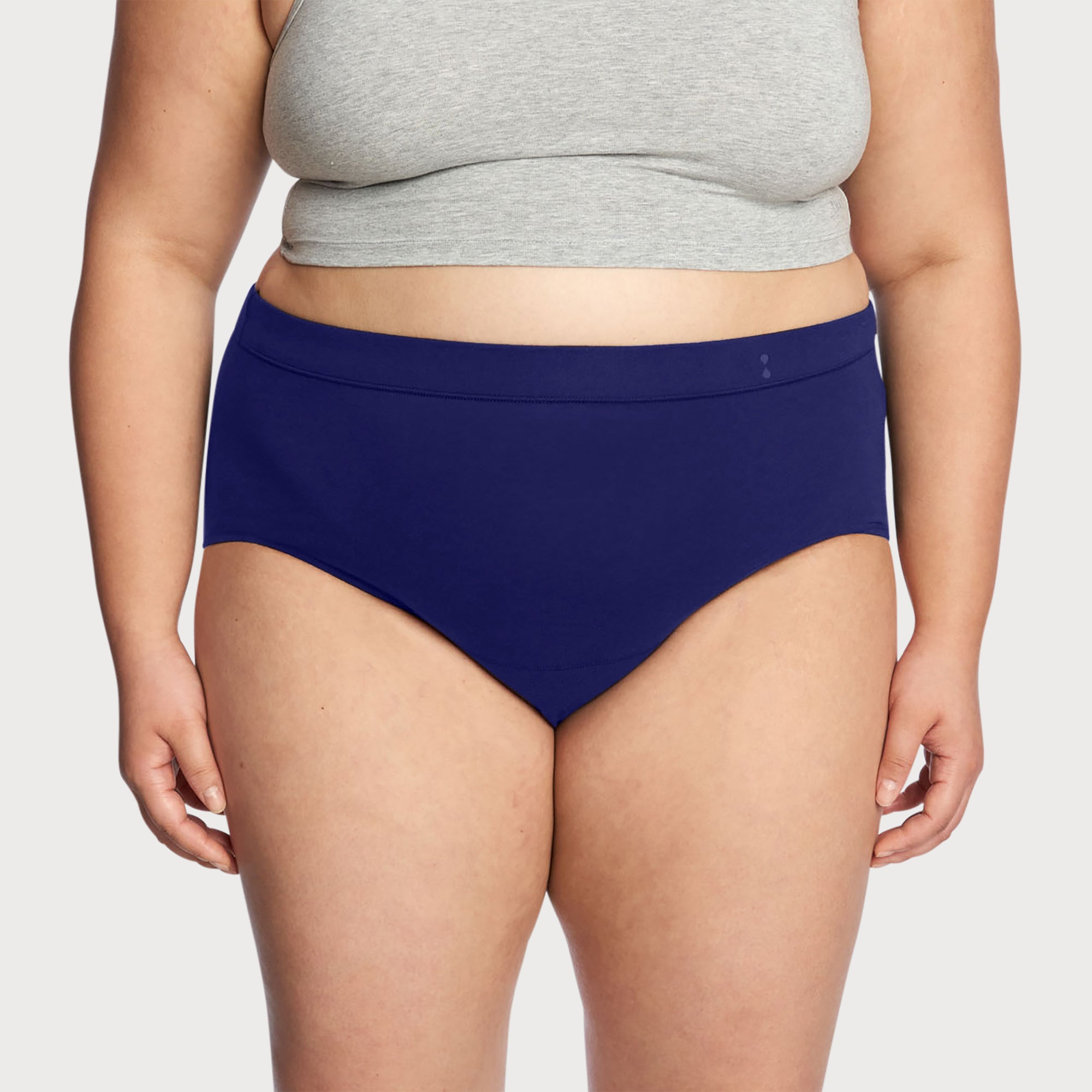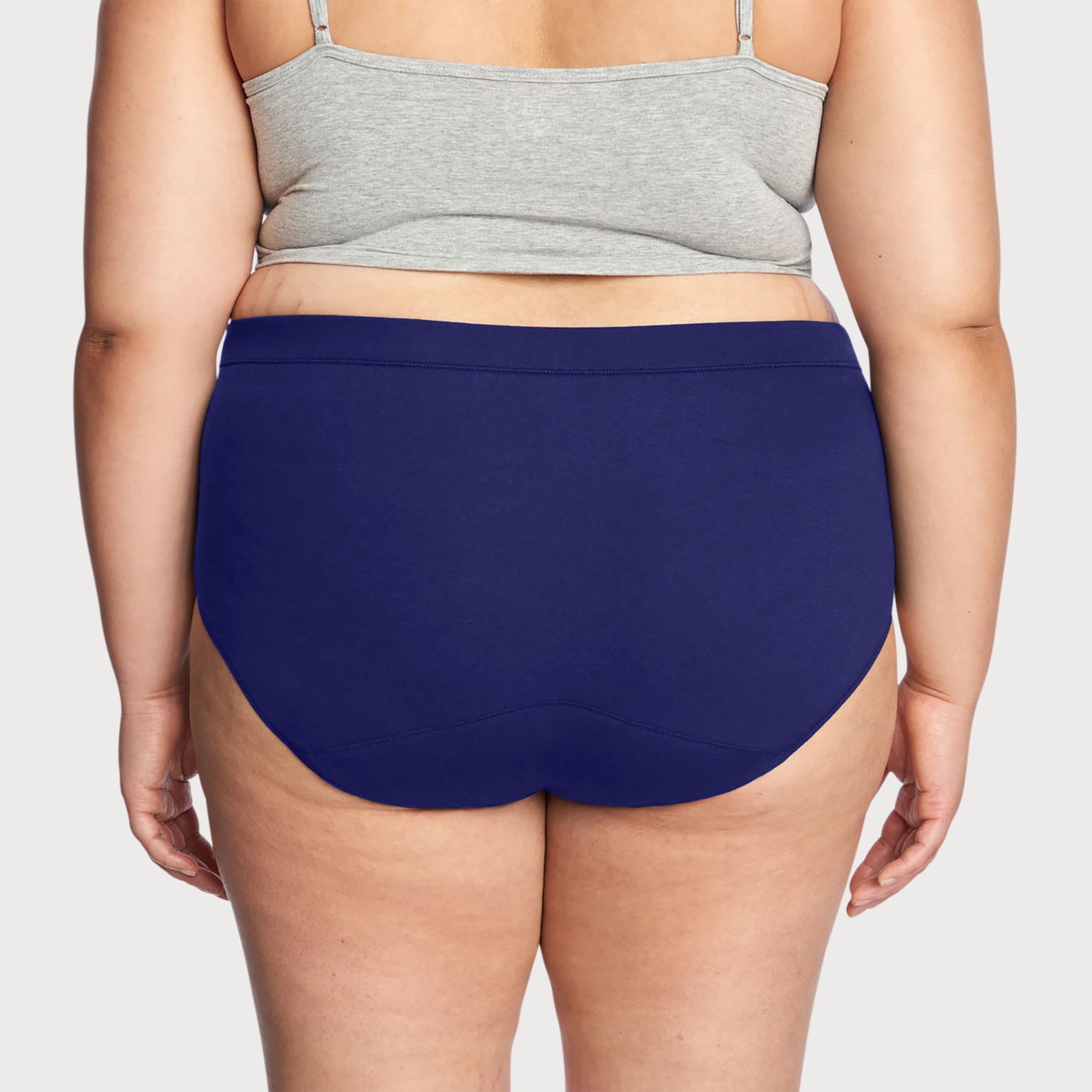Managing Nausea from Your Period
- Share this article Copy to clipboard

Just when you think you’ve got your period routine down, along comes a wave of nausea that makes you want to curl up in bed and cancel your plans. If you’re on your period and feeling nauseous along with experiencingmenstrual cramps, heavy bleeding, and mood swings, you’re definitely not alone.
You might be wondering why this is happening and, more importantly, how to make it stop. The good news? There are ways to manage it so you can get back to feeling like yourself again.
In this blog, we’re diving into what helps with period nausea. Whether it’s making a few tweaks to your diet, finding the proper self-care routine, or exploring comfortable period products from Thinx, there’s a solution out there that’s right for you.
common causes of period nausea
Period nausea can make your menstrual cycle feel like an even bigger challenge –– especially when you’re trying to juggle work, family, and everything else on your plate. But what exactly causes this queasiness during your period?
By figuring out what might be the cause, you can find targeted strategies to reduce nausea and make your period more manageable. Here's a list of common causes:
hormonal changes
As your body prepares for your menstrual period, it experiences significant shifts in hormone levels, particularly estrogen and progesterone. These hormonal changes can slow down your digestion, leading to that uncomfortable, queasy feeling.
uterine contractions
When your uterus is busy shedding its lining, it releases chemicals called prostaglandins. These little helpers are great at getting the job done but can also cause painful cramps and, you guessed it: nausea. The more intense your menstrual cramps are, the more likely you are to feel nauseous.
dysmenorrhea
Dysmenorrhea, or painful periods, can often cause period nausea. Primary dysmenorrhea happens because of natural uterine contractions, which can lead to cramps that make you feel nauseous. Secondary dysmenorrhea, however, is linked to medical conditions like endometriosis or fibroids, causing more intense and longer-lasting pain, often with nausea.
Knowing which type you have can help you find the right ways to manage it, especially when talking to your healthcare provider.
irritable bowel syndrome (IBS)
If you have irritable bowel syndrome (IBS), your digestive system is already sensitive, and your period can make things even trickier. Hormonal changes during your menstrual cycle can worsen IBS symptoms, leading to increased period bloating, cramping, and, yes, nausea.
The interaction between your digestive system and menstrual cycle means that IBS can increase the discomfort you feel during your period, making nausea more frequent and intense. Managing IBS alongside your period may require extra care with your diet, stress levels, and drinking water regularly to help keep both conditions in check.
practical tips for easing period nausea
Now that we’ve covered why you might be feeling queasy, let’s get into the good stuff — how to ease nausea and get back to feeling like yourself. Here are some tips that can help you manage:
dietary and hydration adjustments
One of the easiest ways to alleviate nausea during your period is by making a few tweaks to your diet. Start by eating smaller, more frequent meals instead of three large ones. This can help keep your blood sugar levels steady and prevent that too-full feeling that can trigger nausea.
Focus on bland, easy-to-digest foods like crackers, toast, or bananas. And don’t forget to stay hydrated because drinking water can help with period cramps and nausea.
effective relaxation and self-care practices
Sometimes, a little tender loving care is all you need to ease nausea during your period. Stress can make nausea worse, so try to include some mindfulness and relaxation techniques in your daily schedule.
Whether it’s deep breathing exercises, meditation, or a warm bath, taking time to relax can do wonders for both your mind and your stomach. Applying a warm heating pad to your abdomen can also help reduce menstrual cramps and relieve nausea.
helping to prevent and reduce period nausea
Wouldn’t it be great if you could prevent period nausea from happening in the first place? While you can’t always stop it entirely, there are a few strategies you can use to reduce your chances of feeling queasy during your period:
- keep a symptom diary - Start by tracking your menstrual cycle and noting when your nausea tends to occur. This can help you identify patterns and triggers, so you can be better prepared. For example, if you notice that certain foods or activities seem to make you more nauseous, you can avoid them during your period.
- long-term lifestyle adjustments - Maintaining a balanced diet and a regular exercise routine can help manage your hormonal changes and reduce the severity of your period symptoms. Regular exercise, even something as simple as walking, can help improve blood circulation and reduce menstrual cramps, which in turn can alleviate nausea.
- consider birth control - For some people, birth control pills can help regulate their hormones and reduce severe period pain, heavy bleeding, and nausea.
when to consult a healthcare provider
While period nausea is a common symptom for many, it’s important to know when it’s time to consult a healthcare provider. If your nausea is severe, persistent, or accompanied by other troubling symptoms like vomiting, severe pain, or irregular periods, it’s a good idea to seek medical advice.
Additionally, if your nausea significantly disrupts your daily life or you suspect it might be related to an underlying condition, don’t hesitate to reach out to a professional for guidance and support. Your health and comfort should be a top priority.
enhancing comfort during your period
Dealing with nausea on top of everything else that comes with your period can be exhausting. But there are ways to make yourself more comfortable during this time.
- rest and recover - Listen to your body. If you’re feeling nauseous and exhausted, give yourself permission to rest. Sometimes, the best remedy is simply to take it easy and let your body do its thing!
- focus on self-care - Whether it’s listening to music or a gentle yoga session, make self-care a priority! Focusing on activities that bring you comfort can help distract you from nausea and make your period a little more bearable.
- wear comfortable period products - When you’re already feeling nauseous, worrying about which period products to choose should no longer be part of the burden. This is why our period underwear is designed to keep you comfortable and confident, no matter what your flow is like. It helps protect against leaks, so you can focus on feeling better rather than worrying about your period.
manage period nausea confidently
There you have it — a guide to managing period nausea with practical tips and knowledge. While nausea is never fun, understanding what causes it and how to tackle it can make a big difference in how you feel during your period. With the right strategies from Thinx, you can take on your menstrual cycle with confidence.
sources
Medical News Today. Nausea During Period: Causes and Treatment. https://www.medicalnewstoday.com/articles/nausea-during-period
Cleveland Clinic. What Is Stress Nausea and How to Deal With It. https://health.clevelandclinic.org/what-is-stress-nausea-and-how-to-deal-with-it
Healthline. Nausea During Your Period: Causes, Treatments, and Prevention. https://www.healthline.com/health/womens-health/nausea-during-period#treatment
A.Vogel. PMS and Nausea: What Causes Nausea Before a Period? https://www.avogel.co.uk/health/pms/symptoms/nausea/
Healthline. 17 Natural Ways to Get Rid of Nausea. https://www.healthline.com/nutrition/nausea-remedies





